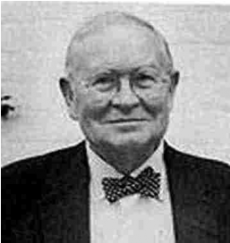
Email: derinadetosoye@gmail.com
Total Article : 11
About Me:I am a student at sixth-form currently studying Economics, Biology & Philosophy and Ethics. My articles are mainly focused on Philosophy and explores the different approaches to ethics. They are written in a way which can be used for revision purposes.

Situation Ethics is a teleological, relative, Christian ethical theory based on agape love which states that an action is right if it produces the most loving outcome and in order to do this rules can be bended if love is best served. The theory was devised by Joseph Fletcher and later developed by JAT Robinson in the 1960s.
At the time which Situation Ethics was pioneered, society was experiencing a time of drastic social, cultural and moral change such as: women in the workforce, the Vietnam war, the legacy of MLK, etc. Fletcher recognised people were moving away from the church (legalism) and more towards antinomianism to what was ethically right, which was summarised by a St. Louis cab driver which he quoted in Situation Ethics (1963), “sometimes you gotta put principles to one side and do what is right.”
Thus in order to combat this change, Fletcher put forward a relativistic, teleological theory which wasn’t prescribed to fixed rules but instead considers the outcomes of actions depending on the situation. His aim was to find a compromise between legalism and antinomianism, by stating that we should abide by rules, but if there is a situation where legalism will not produce the most loving outcome then rules can be bent if love is best served.
Situation Ethics is therefore based on one main rule, that love is the only intrinsic good - “nothing is absolute except love itself” and this rule is inspired by the unconditional, selfless love and teachings of Jesus such as his agape love shown by healing a blind man on the Sabbath Day, despite the fact it was forbidden.
In addition to this fundamental root, Fletcher also created four working principles for Situation Ethics. The first is ‘pragmatism’ meaning that his theory must be practical. The second is ‘relativism’ meaning that there are no fixed rules - you can bend them depending on the situation to produce the most loving outcome. The third is positivism, which means you must put faith before reasoning and the fourth is personalism, which means that people should be at the centre of each theory.
Finally, there are 6 propositions:
1) Love is the only absolute
2) Christian decision making is based on love
3) Justice is love distributed
4) Love wants good for everyone
5) End justifies the means (teleological)
6) Love decides then and there
And that is essentially Situation Ethics in a nutshell! Which do you prefer, Situation Ethics or Utilitarianism?

0 Comment:
Be the first one to comment on this article.